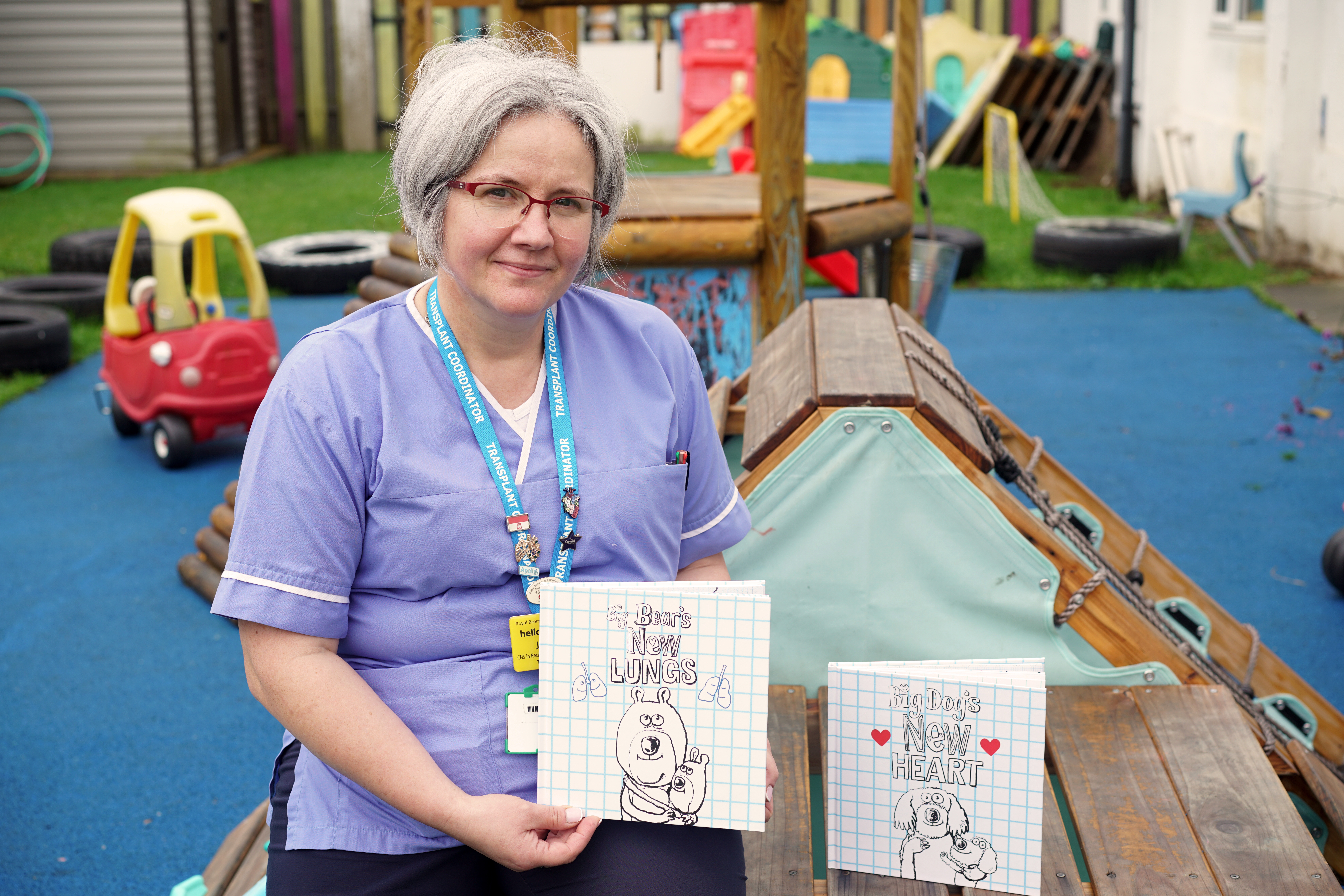How long have you worked at Harefield Hospital?
I finished studying nursing in Poland in 1993 and started my career in a cardiothoracic and transplant ward as a staff nurse. I then moved to the UK and began working at Harefield in the transplant ward in 2005 as a senior staff nurse. I also worked as a senior staff nurse in Harefield’s private patients unit for a couple of years. Then in 2014, I took on my current role as a transplant coordinator in the transplant ward.
What does your day-to-day look like?
My day-to-day work involves seeing patients, both in outpatient and inpatient settings. I mainly work with patients who have lung disease and might be suitable for a lung transplant. I am involved in carrying out an extensive patient assessment which is then presented to a multidisciplinary team made up of surgeons, nurses, physiotherapists, dietitians, psychologists and researchers, who together, will ultimately decide if the patient is suitable for a transplant.
Throughout the whole process I liaise closely with patients on a variety of things, from helping patients manage their lung disease day to day, to helping them better understand the whole transplant journey. So for example, I will talk to patients and their families about the transplant waiting list and what that involves; the surgical procedure and recovery time, and importantly what life can be like after a transplant.
Ultimately, I think my role involves holding lots of important conversations with patients. The potential of a transplant brings a tiny drop of hope to many of our patients and as a nurse, it’s vital that I show compassion and support them to make informed decisions.

What is the best part of your job?
The best part of my job is seeing patients doing well after they have had a transplant. I get lots of messages from patients saying thank you and updating me on how they’re doing. When I see patients in clinic after their transplant and remembering what they were like just a few weeks before when they were very ill, it’s truly the best feeling seeing them doing well.
Obviously, there are very emotional and difficult moments also. Once, a patient’s wife asked that I stayed with her and her husband during the end stages of his life. I was with both of them from the beginning of their journey and it was very emotional for me. This highlighted to me the important role we play in supporting patients and their families throughout their journeys.
You spearheaded a project on producing children’s books for families of transplant patients – can you tell us a bit more about this?
I recognised that children of patients on the transplant waiting list were struggling to understand the journey that their mother or father were on. I decided to go about producing a booklet for them about transplants, so that they could better understand the process and the transplant journey of their parent. The books received amazing feedback from families and fellow colleagues. I presented the books at a transplant coordinators’ meeting and now a few other transplant centres are printing their own versions. You can read more about this project here.
You recently won as Heart, Lung and Critical Care Nurse of the Year in the Trust’s 2024 Nursing and Midwifery Awards – how did this make you feel?
I received the award for my work on producing the transplant books for children. Receiving the award made me realise that what I did was important and that it was recognised, not only by patients but also my colleagues. It was really emotional.
Why do you think organ donation is important?
I think that organ donation is incredibly powerful, not only for the recipients who are given a second chance at life, but also for the families of the donor who may find comfort in their loved ones being able to help someone else after they pass.
